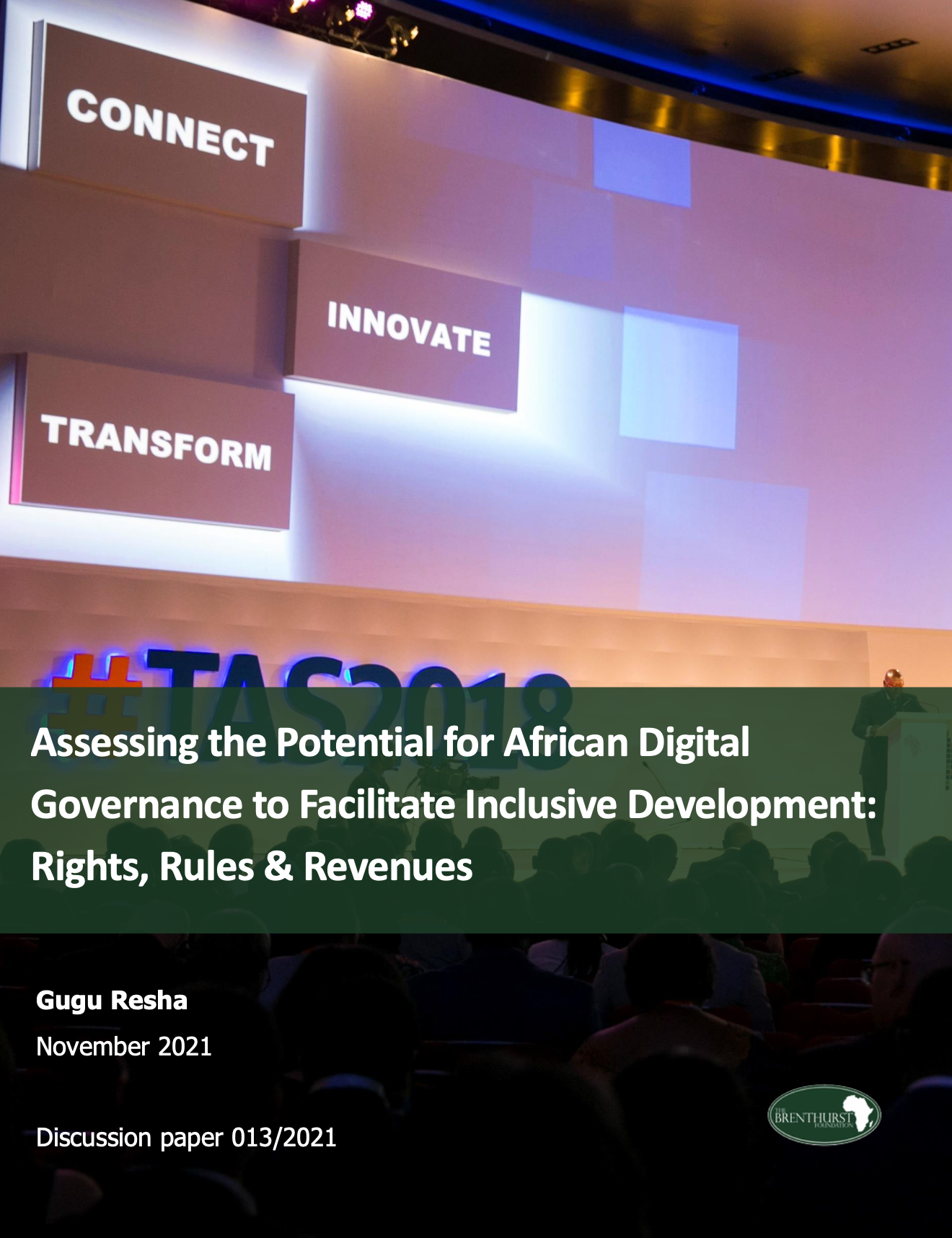Publications
Assessing the Potential for African Digital Governance to Facilitate Inclusive Development: Rights, Rules & Revenues
Digital and data policies provide a coordinated and strategic approach towards implementing digital innovation in a country. Without clear initiatives to enable and drive digital innovation, these developments occur in industry silos, resulting in inconsistent, uncoordinated, and insufficient digital development. The growth of e- commerce and multinational 'tech' giants in some countries has shown that much is at stake for countries that do not create the legal and regulatory frameworks to ensure fairness, safety, and competitiveness in their economies. According to the United States Congressional Anti-trust Report on Big Tech in 2020, in digital industries, like in other industries, early adopters have the ability to monopolise and accumulate capacities that later stunt late adopters. More specifically, stragglers could lose out from the estimated US$6.8 trillion in direct investments that are expected to be generated between 2020-2030. Digital transformation and innovation are clearly the biggest development drivers of the century.
In order to assess African countries' progress, or lack thereof, in preparing for and driving digital transformation, this discussion compares the digital policies and regulatory environment in four counties - Kenya, Morocco, Nigeria, and South Africa. These countries are considered to be the continents' digital economy leaders as they have the highest internet penetration, well-developed e-commerce activity, as well as data privacy legislations.This discussion contributes to the existing readiness assessments for e-trade in Africa, and looks at the broader role of digital transformation in facilitating inclusive development rather than focusing narrowly on creating economic growth. The discussion focuses on three main themes: 1) the Rules or regulatory framework of a digital economy, 2) the Rights and protections of consumers', workers', and broader citizens' freedoms in a digital economy; and 3) the policies to sustainably promote and increase Revenues from the digital economy. The aim is to highlight the best practices and policy considerations for African governments to ensure that digital transformation is geared towards economic growth and meeting broader development objectives.



